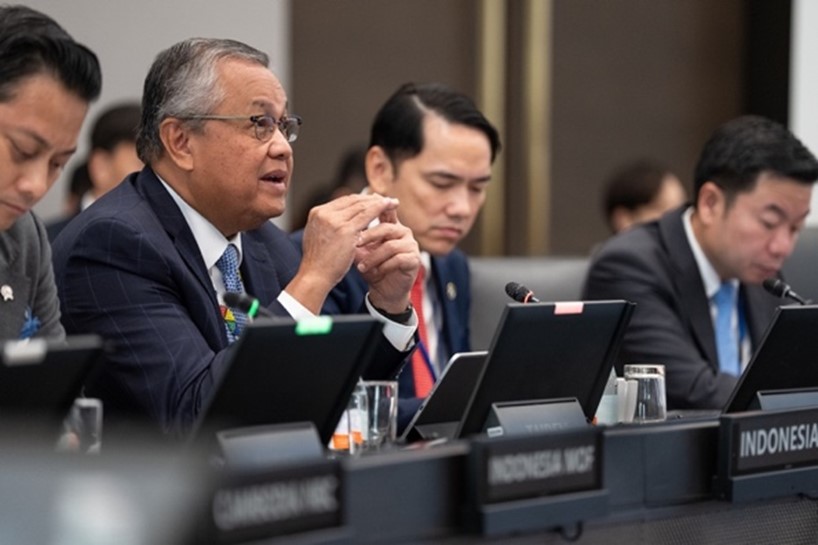The 2025 Annual Meetings of the International Monetary Fund (IMF) and World Bank took place from October 13–18 in Washington D.C., highlighting the role of multilateralism in maintaining global economic stability. Global growth exceeded earlier forecasts, supported by credible policies, rising investment and trade, and limited impacts from trade uncertainty.
Despite this progress, several risks remain. These include rising protectionism, labor market imbalances, the growing influence of non-bank financial institutions, and uncertainty around the effects of Artificial Intelligence on productivity. These developments underline the need for adaptable and collaborative international policy responses.
Indonesia’s Policy Approach Emphasizes Reform and Regional Cooperation
Bank Indonesia Governor Perry Warjiyo, representing countries in the region, outlined three key strategies taken by Indonesia to maintain economic resilience and keep inflation within target.
First, the country applies a coordinated policy mix involving monetary, fiscal, and financial stability tools. Second, it implements structural reforms to support growth through natural resource downstreaming, digitalization, financial inclusion, and job creation. Third, it strengthens trade and investment cooperation within ASEAN and with major partners such as the United States, China, Japan, India, and Europe.
“Multilateralism is far more effective than unilateralism in promoting global economic growth and addressing imbalances,” said Governor Perry.
G20 Supports Credible Policies and Financial System Reform
In response to ongoing global challenges, G20 Finance Ministers and Central Bank Governors expressed a joint commitment to reinforce multilateral cooperation and credible policy actions. These include balanced fiscal and monetary strategies, greater resilience to financial risks, and ongoing reform for inclusive and sustainable growth.
The meeting also addressed the need to strengthen the international financial architecture. This includes reforming Multilateral Development Banks (MDBs) and addressing debt vulnerabilities. The G20 meeting concluded with South Africa handing over the G20 Presidency to the United States for 2026.
IMF Outlines Four Policy Priorities for Member States
During the IMF meetings, member states agreed on a global policy agenda focused on stability and resilience in the face of continued uncertainty. The IMF put forward four main policy directions.
First, countries are encouraged to apply more cautious medium-term fiscal management to strengthen fiscal resilience without reducing investment or social spending. Second, central banks should maintain price stability while preserving independence and transparency. Third, financial sector policies must increase vigilance toward market risks and linkages between financial institutions. Fourth, structural reforms should aim to support sustainable growth by improving the business climate, strengthening governance, combating corruption, simplifying regulations, developing capital markets, and increasing entrepreneurship and competitiveness.
Key Outcomes Reflected in IMFC Chair’s Statement
The meetings produced the IMFC Chair’s Statement, summarizing the main discussions. These included the current global economic conditions, recommended policy directions, and issues under IMF attention.
PHOTO: BANK INDONESIA
This article was created with AI assistance.
Read More






 Saturday, 31-01-26
Saturday, 31-01-26







